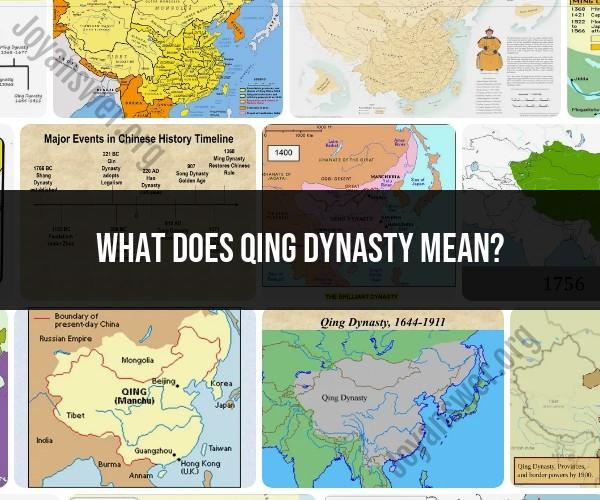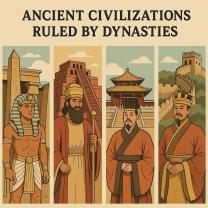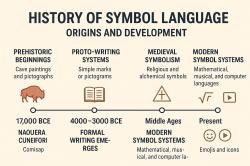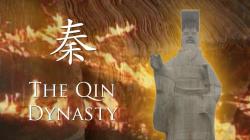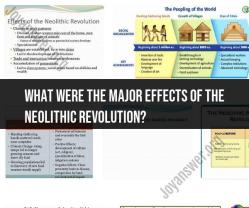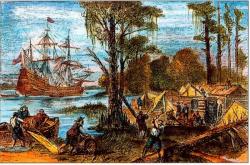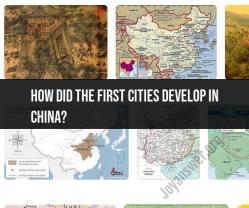What does Qing dynasty mean?
The Qing Dynasty, also spelled as Ching Dynasty, is a historical term referring to a major imperial dynasty that ruled China from 1644 to 1912. The name "Qing" (清) is derived from the Chinese word for "clear" or "pure." It was the last imperial dynasty in Chinese history and played a significant role in shaping the country's culture, politics, and territorial expansion. Here are some key aspects of the meaning and significance of the Qing Dynasty:
Establishment: The Qing Dynasty was established by the Manchu people, who originated from the northeastern region of present-day China. They successfully overthrew the Ming Dynasty and established their rule, marking the beginning of the Qing Dynasty in 1644.
Cultural Diversity: The Qing Dynasty ruled over a vast and culturally diverse empire, which included Han Chinese, Manchu, Mongol, Tibetan, and other ethnic groups. The Qing emperors adopted a policy of multiculturalism, allowing various ethnicities to maintain their own traditions and languages within the empire.
Confucianism: The Qing Dynasty adopted Confucianism as its state ideology and incorporated Confucian principles into its governance. This influence of Confucianism on Qing governance and society shaped many aspects of Chinese life during this period.
Territorial Expansion: Under Qing rule, China's territory expanded significantly through both military conquests and diplomatic treaties. The Qing Dynasty extended its borders into Tibet, Mongolia, Xinjiang (East Turkestan), and Taiwan, among other regions.
Economic Prosperity: The Qing Dynasty oversaw periods of economic growth and prosperity, with increased agricultural production and trade. The introduction of new crops like maize and sweet potatoes, as well as the growth of trade along the Silk Road, contributed to economic development.
Decline and Challenges: The Qing Dynasty faced various challenges during its long reign, including internal corruption, social unrest, and external pressures from European powers and neighboring countries. The Opium Wars and the Taiping Rebellion were significant events that weakened the dynasty.
Fall and Transition: The Qing Dynasty ultimately fell in 1912, following the Xinhai Revolution led by Sun Yat-sen and the establishment of the Republic of China. The last Qing emperor, Puyi, abdicated the throne, bringing an end to over two thousand years of imperial rule in China.
The Qing Dynasty's significance lies in its long-lasting rule, its contributions to Chinese culture and governance, its expansion of territory, and its eventual transition to a modern republic. It remains a crucial period in Chinese history, reflecting the complexities and challenges of ruling a vast and diverse empire.
The Qing Dynasty: Unraveling Its Meaning and Legacy
The Qing Dynasty (1644-1912) was the last imperial dynasty of China. It was founded by the Manchus, a Tungusic-speaking ethnic group from Manchuria. The Qing Dynasty was a time of great expansion and prosperity for China, as the empire reached its greatest territorial extent and the population grew to over 400 million people. The Qing Dynasty was also a time of great cultural flourishing, as the Manchus adopted and adapted Chinese culture while also introducing their own unique elements.
The Qing Dynasty's legacy is complex and multifaceted. On the one hand, the Qing Dynasty was a time of great stability and prosperity for China. The Qing emperors were skilled administrators and diplomats, and they were able to maintain a tight grip on power for over 260 years. The Qing Dynasty was also a time of great cultural flourishing, as the Manchus adopted and adapted Chinese culture while also introducing their own unique elements.
On the other hand, the Qing Dynasty also had its dark side. The Qing emperors were often ruthless in their suppression of dissent, and they implemented a number of policies that discriminated against non-Manchu ethnic groups. The Qing Dynasty also faced a number of challenges in the late 19th and early 20th centuries, including foreign imperialism, internal corruption, and peasant unrest. In 1911, the Qing Dynasty was overthrown by the Xinhai Revolution, which established the Republic of China.
China's Imperial History: The Significance of the Qing Dynasty
The Qing Dynasty was one of the most significant dynasties in Chinese history. It was the longest-lasting dynasty, and it presided over a period of great expansion and prosperity. The Qing Dynasty also played a key role in shaping modern China.
One of the most significant aspects of the Qing Dynasty was its expansion of Chinese territory. The Qing emperors conquered Mongolia, Tibet, and Xinjiang, and they also expanded China's influence into Central Asia. This expansion made China the largest and most powerful empire in the world at the time.
The Qing Dynasty also presided over a period of great economic prosperity. The Qing emperors implemented a number of policies to promote agriculture and trade, and the Chinese economy grew rapidly during this period. The Qing Dynasty also saw the development of a new class of merchants and industrialists.
The Qing Dynasty also played a key role in shaping modern China. The Qing emperors implemented a number of reforms to modernize the Chinese government and military. They also introduced new technologies to China, such as the telegraph and the steamship. The Qing Dynasty also saw the rise of a new generation of Chinese intellectuals who were influenced by Western ideas.
Emperors and Empires: A Closer Look at the Qing Dynasty
The Qing Dynasty was ruled by a series of emperors, who were all members of the Manchu Aisin Gioro clan. The most famous Qing emperors include Kangxi, Yongzheng, and Qianlong. These three emperors reigned during the High Qing period, which was a time of great stability and prosperity for China.
The Qing emperors were absolute monarchs, and they had complete control over the government. They were also the chief religious and cultural leaders of China. The Qing emperors lived in a lavish palace complex in Beijing, and they were surrounded by a court of thousands of people.
The Qing Dynasty was a vast empire, and it was ruled by a complex bureaucracy. The Qing government was divided into six ministries: Civil Service, Revenue, Rites, War, Justice, and Public Works. Each ministry was responsible for a different aspect of the government's administration.
The Qing Dynasty was also a multi-ethnic empire, and the Qing emperors implemented a number of policies to promote unity and harmony among the different ethnic groups. The Qing emperors also promoted the use of Chinese language and culture throughout the empire.
The Qing Dynasty was a complex and fascinating period in Chinese history. It was a time of great expansion, prosperity, and cultural flourishing. The Qing Dynasty also played a key role in shaping modern China.
